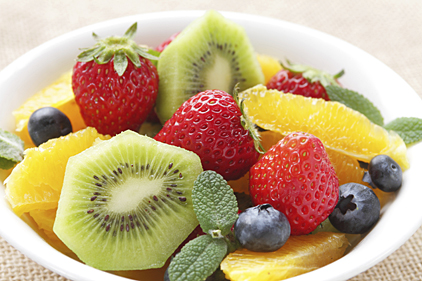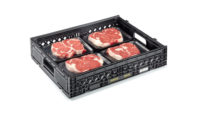New scientific research indicates that corrugated packaging keeps fruit fresher and safer than reusable plastic crates (RPCs) and can significantly reduce contamination from transferred microorganisms.
The research, conducted by the University of Bologna, Italy, and initiated by the European Federation of Corrugated Board Manufacturers (FEFCO), Brussels, found that corrugated trays ensured higher-quality packed fruits with reduced microbial cross-contamination and longer shelf life.
“We are encouraged by the most recent research conducted by the University of Bologna,” says Dennis Colley, president and CEO of the Fibre Box Association (FBA), Itasca, Ill. “We know corrugated is clean when it reaches the grower/shipper. Now, this research shows corrugated, in addition to cushioning and protecting produce, also mitigates the spread of contamination if the container becomes contaminated while packing or if fresh produce begins to decay during transportation. The ability of corrugated packaging to increase shelf life could translate into significantly reduced shrink and potentially millions of dollars in savings for retailers."
The research was led by professor Rosalba Lanciotti at the University of Bologna’s Department of Agricultural and Food Sciences, and examined the exchange of microbes between produce and packaging and vice-versa, focusing especially on determining how differences in packaging materials can influence cross-contamination.
The results showed that fruit packed in corrugated fared better (with fewer transferred pathogenic and spoilage bacteria) than the fruit packed in RPCs.
Methodology
Scientists deliberately contaminated both corrugated trays and RPCs with the same number of Escherichia coli, Saccharomyces cerevisiae and Pseudomonas spp. microorganisms. Fresh peaches were washed with tap water, sterilized with a sodium solution, rinsed with sterilized water and then air-dried before being placed into the containers for testing. Next, researchers measured the levels of bacteria that transferred to the fruit over time.
Results
Fruit packed in plastic crates reached contamination levels generally associated with spoilage 48-72 hours earlier than the fruit packed in corrugated trays.
Contributing factors such as storage temperature, length of time before sale and superficial damage on the peaches were also considered. Results showed that all these factors influenced the microbial transfer from packaging material to fruit, but the transfer of spoilage microorganisms was always lower in corrugated trays.
The tests also showed that in some conditions (i.e. high storage temperature), up to 95% of peaches packed in the deliberately contaminated RPCs were infected with E. coli after 48 hours. By contrast, the E. coli contamination level never exceeded 25% of the peaches packed in corrugated containers that had been contaminated with the same levels of microorganisms.
Conclusion
This new study proved that using corrugated instead of plastic packaging for fruit can significantly reduce potential contamination via microbial transfer. Professor Lanciotti and her team concluded that peaches packed in corrugated therefore reach consumers in a safer and fresher state than those in plastic crates.






